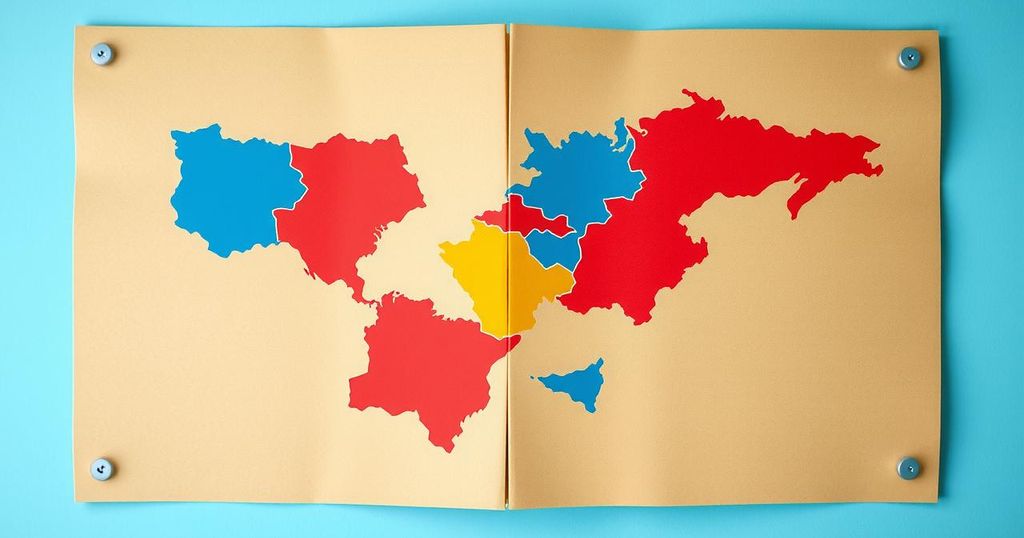Politics
ASIA, CHIANG KAI - SHEK, COMMERCE, DONALD TRUMP, EURACTIV, EUROPEAN UNION, GEOPOLITICS, MAO ZEDONG, NATIONAL SECURITY, NORTH AMERICA, SOUTH CHINA SEA DISPUTE, TAIWAN, TARIFF BOARD, TERRITORIAL DISPUTES, TRUMP, U. S, UNITED NATIONS, UNITED STATES, US-CHINA RELATIONS, WASHINGTON, WORLD HEALTH ORGANIZATION
Sophia Klein
Geopolitical Implications of Taiwan’s Designation in U.S. Tariff Announcement
The U.S. White House labeled Taiwan a country during a tariff announcement, which has led to geopolitical tensions, as China claims sovereignty over Taiwan. Following increased tariffs on China, Beijing has called for a reevaluation of the U.S. stance. Taiwan, officially recognized by only 13 nations, continues to navigate complex international relations amidst rising military tensions from China.
The White House’s characterization of Taiwan as a country during President Trump’s tariff announcement raised significant geopolitical concerns. China asserts sovereignty over Taiwan, viewing it as a breakaway province, and has urged the United States to reevaluate this designation.
During the tariff announcement, President Trump displayed a sign that listed Taiwan at the top, implying its status as a nation. This action coincided with Trump imposing a new 34% tariff on Chinese goods, bringing the total rate to 54%. This increase comes as part of Trump’s broader strategy of implementing ‘reciprocal tariffs’ against perceived unfair trade practices by other nations.
In response to the tariffs, China expressed a strong discontent and threatened retaliation. The Chinese Ministry of Commerce criticized the U.S. for jeopardizing global economic stability and demanded the immediate cancellation of the imposed tariffs.
The classification of Taiwan remains sensitive as it is recognized as an independent nation by only a small number of UN member states. The United States does not formally recognize Taiwan as a sovereign state, denying its accession to major international organizations such as the United Nations.
Beijing has maintained its claim over Taiwan since the Chinese civil war of the 1940s, during which the Nationalists retreated to Taiwan after being defeated by the Communists. The government in Beijing has not ruled out the use of military force to achieve unification. Recently, Chinese military aircraft have increasingly entered Taiwan’s air defense zone as a show of force.
Taiwanese officials did not comment directly on the labeling but emphasized the strength of U.S.-Taiwan relations. They cited the complexity of the situation but refrained from speculating on the motivations behind the White House’s designation of Taiwan.
China’s ambassador to the U.S., Xie Feng, denounced the labeling, affirming that “Taiwan is China’s Taiwan.” He reiterated China’s commitment to peaceful unification while opposing any form of independence for Taiwan, signaling continued tensions in the region.
The U.S. White House’s labeling of Taiwan as a country during a tariff announcement has elicited significant backlash from China, underscoring the ongoing tensions surrounding Taiwan’s sovereignty. Despite Taiwan’s robust relationship with the U.S., it remains formally unrecognized as an independent state. As geopolitical dynamics evolve, this categorization may have repercussions for U.S.-China relations.
Original Source: www.usatoday.com








Post Comment